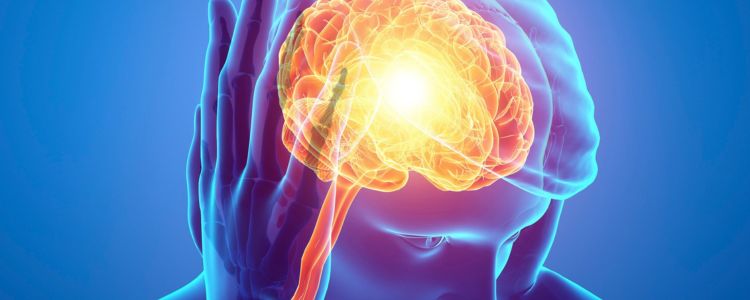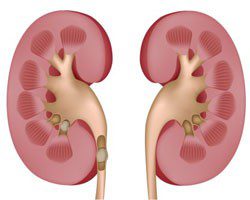
Anxiety’s Influence on Decision-Making: Finding Balance
- Dr. P T Ponmani
- No Comments

Anxiety is a raw and primary human emotion that has a considerable influence over every choice and every decision we make. It profoundly impacts other emotions like fear, stress, etc. Anxiety, like fear, is a basic flight or fight emotion. These emotions are necessary in small amounts, like an impetus to complete some tasks and improve ourselves in stressful situations. However, too much anxiety, stress, or fear can have harmful impacts on both the mental and physical health of a person.
Table of Contents
ToggleWhat is decision-making?
Making decisions is a complex process that requires thorough assessment and evaluation of various factors to reach a particular personal choice. Making decisions involves assessing and considering multiple factors and weighing short-term and long-term analyses, depending on the loss or gains from different options. It is a dynamic process through which a long-term response is made against the impulsive reaction to provide the ultimate desired result.
A person affected by anxiety disorder may find it challenging to adapt and evolve to process the decision-making function or ability to avoid expected adverse outcomes. Anxiety and fear might have a massive impact on the ability to function adaptively in a person with anxiety disorder. However, little is known about the influence-specific decision variables as the research on the topic is very limited.
There are several reports documented on cognitive biases associated with the influence of anxiety on decision-making. For instance, confirmation bias, where individuals always try to favour information that confirms their preconceptions, can be easily influenced by the presence of anxiety, leading to biased decision-making.
How does anxiety affect decision-making?
Anxiety manifests in decision-making as a response to uncertainty or perceived threats, such as a reluctance to invest or to miss out on many potentially profitable opportunities. However, understanding the source of anxiety, whether it is a fear of losing money, a fear of missing out, etc., is crucial. This understanding helps individuals to identify and overcome the difficulties in decision-making caused by anxiety.
The anxiety can be further fueled by other common factors such as family problems, relationship issues, economic downfalls, and even day-to-day happenings in the world.
Anxiety can lead to excessive or irrational fears about matters concerning money and relationships. This long-time fear can cloud their judgment and ability to think clearly about their choices, and they also procrastinate in making important decisions or impulsive choices to avoid immediate discomfort. Developing techniques to manage and mitigate anxiety is paramount for making sound financial decisions.
People driven by extreme anxiety can make extreme decisions. Some may become over-conservative, missing out on potentially beneficial opportunities, whereas some might take excessive risk-taking to overcome the concern in a particular situation quickly.
While the influence of excessive anxiety and fear on the everyday decision-making of clinically anxious people is evident, the connection between stress and decision-making remains a largely unexplored area in neurological studies.
This gap in this knowledge needs to be filled by further research and exploration.
Also Read Stress - Why Does It Happen And How To Manage It?
Anxiety and decision-making problems
Most often, people have to make tough choices as to whether to endure some discomfort to get hold of an advantageous opportunity or walk away from it, as it requires handling pressure. While such decisions are kept in front of a person, the brain always goes with the desire to go for the reward against the desire to avoid the difficulty it has to face.
- Anxiety can weaken high-level decision-making ability. When anxiety develops, the executing function has to be protected by the parasympathetic nervous system that calms the nerves. Stress hormone levels influence anxiety and the parasympathetic nervous system, which keeps emotions balanced. When the balancing act is affected, there may be problems with decision-making.
- Anxiety can weaken or suppress executive function and high-level thinking. This also can affect decision-making ability.
- Anxiety can cause reflective thinking to shut down. In such a state of mind, a person believes what is imaginary is to be processed in the mind as though it is reality. This alters decision-making by accepting a favourable outcome that seems assured and an unfavourable outcome that appears inescapable.
- Anxiety can affect the heart rate, respiratory rate, sweating ten,sion, etc. because these feelings are associated with danger or uncomfortable circumstances that make a person believe what he thinks about is a threat and overreact by treating a situation that poses no danger as though it were a threat.
- Anxiety can unknowingly lead you to believe in the form of magical thinking, a term referred to describe the opinion or strong belief that a person’s thoughts and actions can have a substantial impact on the course of events in the external world. This belief does not directly affect the outcome of the person’s choices, but it can have an indirect negative effect. For instance, cherishing a lucky charm, lucky stone or personal effect, believing that it can ensure success in a person’s life, is a form of magical thinking. It can affect a person’s ability to predict the outcome, determine whether action is needed, and make effective decisions.
- Anxiety makes a person deny reality to avoid a level of uncertainty where a person is not prepared to confront or tolerate an unacceptable outcome. This state of denial is a defence mechanism in terms of psychology. It means refusing to accept reality or facts. This belief can lead to the inability to take proper action or reaction, affecting the decision-making.
- Anxiety keeps on pressuring a person to put off a decision, as just thinking about the variable in the outcome of the decision that conflicts with the person’s preconceived notion may be very stressful.
- Anxiety in a person avoids making a commitment because it might be a wrong decision. Sometimes, it can lead you to make impulsive decisions.
- Anxiety may let others decide for a person, though they are intellectually less competent than the person is.
Conclusion
We always make better and more productive decisions when anxiety is under control. Our stress level is regulated automatically and unconsciously by the interplay between the system that rejuvenates us and calms us down. A balance is maintained between our sympathetic and parasympathetic nervous systems. Though we usually blame stress for causing our anxiety, the actual cause may be an underactive parasympathetic nervous system. Its activation occurs through involuntary processes, which we develop early in life if we are reliably calmed and never frightened unnecessarily during our childhood.
Anxiety does have a severe impact on decision-making. It should be identified and treated as early as possible as it may have severe
repercussions on a person’s overall health and life, as his choices might be dangerous to himself and his family. To reach this goal, it is necessary to study the processes in the state of the anxious mind, its interactions between decision-making and other cognitive functions, and its impact on different emotions.
There are numerous innovative relaxing techniques for the mind, such as yoga and mindful meditation. Regular walks, listening to music, natural sounds, nature walks, workout sessions, aromatherapy, etc can help ease the anxiety and de-stress the mind. Talking to a friend or relative or a professional psychologist, along with homoeopathic medicines, can help alleviate anxiety and related problems.





























